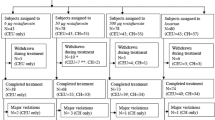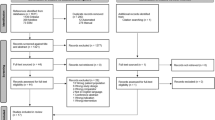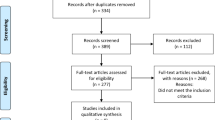Abstract
Pharmacogenetics play an important role in determining the anti-hypertensive effects of blood pressure-lowering medications and have the potential to improve future patient care. Current literature on the topic, however, has a heavy focus on Caucasians and may not be generalisable to the Asian populations. Therefore, we have conducted this systematic review to summarise and evaluate the literature of the past decade. PubMed, Embase, and the Cochrane Register of Controlled Trials were searched for relevant studies from 1 January 2011 to 23 July 2021. The outcome of interest was the response to anti-hypertensive treatment in Asians according to each genetic polymorphism. A total of 26 studies with a total of 8837 patients were included in our review, covering five classes of anti-hypertensive agents—namely, angiotensin-converting enzyme inhibitors (ACEI), angiotensin II receptor blockers (ARB), beta-blockers (BB), calcium channel blockers (CCB), and thiazide-like diuretics. Response to ACEI therapy was most susceptible to genotypic variations, while the efficacy of ARB and CCB were affected by pharmacogenetic differences to varying extent. For BB, only variations in the ADRB1 genotype significantly affects therapeutic response, while the therapeutic efficacy of thiazide-like diuretics was correlated with genotypic variations in the REN and ACE. This systematic review evaluated the impact of pharmacogenetic variations on the therapeutic efficacy of anti-hypertensive treatment in Asians and has described numerous drug-gene pairs that are potentially clinically important. Future prospective studies with larger sample sizes and longer follow-up periods are needed to better elucidate the impact of these drug-gene pairs.
This is a preview of subscription content, access via your institution
Access options
Subscribe to this journal
Receive 12 digital issues and online access to articles
$119.00 per year
only $9.92 per issue
Buy this article
- Purchase on Springer Link
- Instant access to full article PDF
Prices may be subject to local taxes which are calculated during checkout


Similar content being viewed by others
References
World Health Organization (WHO). Hypertension. 2021 [cited 2021 Aug 2]. Available from: https://www.who.int/news-room/fact-sheets/detail/hypertension
Kearney PM, Whelton M, Reynolds K, Muntner P, Whelton PK, He J. Global burden of hypertension: analysis of worldwide data. Lancet. 2005;365:217–23. 2005/01/18 ed
Lim SS, Vos T, Flaxman AD, Danaei G, Shibuya K, Adair-Rohani H, et al. A comparative risk assessment of burden of disease and injury attributable to 67 risk factors and risk factor clusters in 21 regions, 1990–2010: a systematic analysis for the Global Burden of Disease Study 2010. Lancet. 2012;380:2224–60.
Egan BM, Zhao Y, Axon RN. US trends in prevalence, awareness, treatment, and control of hypertension, 1988-2008. JAMA. 2010;303:2043–50.
World Health Organization. Adherence to long-term therapies: evidence for action / [edited by Eduardo Sabaté]. 2003; Available from: https://apps.who.int/iris/handle/10665/42682
Chobanian AV. Shattuck Lecture. The hypertension paradox-more uncontrolled disease despite improved therapy. N Engl J Med. 2009;361:878–87.
Lewington S, Clarke R, Qizilbash N, Peto R, Collins R. Prospective Studies Collaboration. Age-specific relevance of usual blood pressure to vascular mortality: a meta-analysis of individual data for one million adults in 61 prospective studies. Lancet Lond Engl. 2002;360:1903–13.
Hsu C, McCulloch CE, Darbinian J, Go AS, Iribarren C. Elevated blood pressure and risk of end-stage renal disease in subjects without baseline kidney disease. Arch Intern Med. 2005;165:923–8.
Lawes CMM, Vander Hoorn S, Rodgers A. International Society of Hypertension. Global burden of blood-pressure-related disease, 2001. Lancet Lond Engl. 2008;371:1513–8.
Yoon SS, Burt V, Louis T, Carroll MD Hypertension among adults in the United States, 2009-2010. NCHS Data Brief. 2012;(107):1–8.
Diao D, Wright JM, Cundiff DK, Gueyffier F Pharmacotherapy for mild hypertension. Cochrane Database Syst Rev. 2012;(8):CD006742.
Hiltunen TP, Donner KM, Sarin AP, Saarela J, Ripatti S, Chapman AB, et al. Pharmacogenomics of hypertension: a genome‐wide, placebo‐controlled cross‐over study, using four classes of antihypertensive drugs. J Am Heart Assoc 2015;4:e001521. 2015/01/28 ed.
Padmanabhan S, Newton-Cheh C, Dominiczak AF. Genetic basis of blood pressure and hypertension. Trends Genet Tig 2012;28:397–408.
Ehret GB, Caulfield MJ. Genes for blood pressure: an opportunity to understand hypertension. Eur Heart J. 2013;34:951–61.
Munroe PB, Barnes MR, Caulfield MJ. Advances in blood pressure genomics. Circ Res. 2013;112:1365–79.
McDonough CW, Magvanjav O, Sá ACC, El Rouby NM, Dave C, Deitchman AN, et al. Genetic variants influencing plasma renin activity in hypertensive patients from the PEAR Study (Pharmacogenomic Evaluation of Antihypertensive Responses). Circ Genom Precis Med. 2018;11:e001854.
Page MJ, McKenzie JE, Bossuyt PM, Boutron I, Hoffmann TC, Mulrow CD, et al. The PRISMA 2020 statement: an updated guideline for reporting systematic reviews. BMJ. 2021;372:n71.
Sterne JAC, Savović J, Page MJ, Elbers RG, Blencowe NS, Boutron I, et al. RoB 2: a revised tool for assessing risk of bias in randomised trials. Bmj. 2019;366:l4898. 2019/08/30 ed.
Stang A. Critical evaluation of the Newcastle-Ottawa scale for the assessment of the quality of nonrandomized studies in meta-analyses. Eur J Epidemiol. 2010;25:603–5.
Gupta S, Chattopadhyaya I, Agrawal BK, Sehajpal PK, Goel RK. Correlation of renin angiotensin system (RAS) candidate gene polymorphisms with response to Ramipril in patients with essential hypertension. J Postgrad Med 2015;61:21–6. 2014/12/17 ed.
Heidari F, Vasudevan R, Mohd Ali SZ, Ismail P, Etemad A, Pishva SR, et al. Association of insertion/deletion polymorphism of angiotensin-converting enzyme gene among Malay male hypertensive infjects in response to ACE inhibitors. J Renin-Angiotensin-Aldosterone Syst. 2015;16:872–9.
Hong Z, Pan L, Fei J, Ma Z, Hong Z. A positive association between the human tissue kallikerin gene A2233C polymorphism and blood pressure response to benazepril. Clin Exp Hypertens. 2017;39:389–93. 2017/06/18 ed.
Luo JQ, Wang LY, He FZ, Sun NL, Tang GF, Wen JG, et al. Effect of NR3C2 genetic polymorphisms on the blood pressure response to enalapril treatment. Pharmacogenomics. 2014;15:201–8. 2013/09/26 ed.
Srivastava K, Chandra S, Bhatia J, Narang R, Saluja D. Association of angiotensinogen (M235T) gene polymorphism with blood pressure lowering response to angiotensin converting enzyme inhibitor (Enalapril). J Pharm Pharm Sci. 2012;15:399–406. 2012/09/15 ed.
Zhang N, Cui H, Yang L. Effect of angiotensin II type I receptor A1166C polymorphism on benazepril action in hypertensive patients: a family-based association test study. Arch Pharm Res. 2012;35:1817–22. 2012/11/10 ed.
Zhou J, He F, Sun B, Liu R, Gao Y, Ren H, et al. Polytropic influence of TRIB3 rs2295490 genetic polymorphism on response to antihypertensive agents in patients with essential hypertension. Front Pharmacol. 2019;10:236. 2019/04/12 ed.
He F, Luo J, Zhang Z, Luo Z, Fan L, He Y, et al. The RGS2 (−391, C>G) genetic variation correlates to antihypertensive drug responses in Chinese patients with essential hypertension. PLoS One. 2015;10:e0121483. 2015/04/08 ed.
Chen WQ, Shu Y, Li Q, Xu LY, Roederer MW, Fan L, et al. Polymorphism of ORM1 is associated with the pharmacokinetics of telmisartan. PLoS One. 2013;8:e70341. 2013/08/14 ed.
Citterio L, Scioli GA, Glorioso N, Bigazzi R, Cusi D, Staessen JA, et al. Antihypertensive treatment guided by genetics: PEARL-HT, the randomized proof-of-concept trial comparing rostafuroxin with losartan. Pharmacogenomics J. 2021; Available from: https://www.embase.com/search/results?subaction=viewrecord&id=L2010615119&from=export: https://doi.org/10.1038/s41397-021-00214-y
Gong HT, Ma XL, Chen BX, Xu XY, Li Q, Guo CX, et al. Polymorphisms of the angiotensin II type 1 receptor gene affect antihypertensive response to angiotensin receptor blockers in hypertensive Chinese. Genet Mol Res. 2013;12:2068–75. 2013/08/06 ed.
Gong HT, Mu LY, Zhang T, Xu XY, Du FH. Association of mononucleotide polymorphisms of angiotensinogen gene at promoter region with antihypertensive response to angiotensin receptor blockers in hypertensive Chinese. J Renin Angiotensin Aldosterone Syst. 2019;20:1470320319827205. 2019/02/26 ed.
Ji X, Qi H, Li DB, Liu RK, Zheng Y, Chen HL, et al. Associations between human aldosterone synthase CYP11B2 (−344T/C) gene polymorphism and antihypertensive response to valsartan in Chinese patients with essential hypertension. Int J Clin Exp Med. 2015;8:1173–7. 2015/03/19 ed.
Jia J, Men C, Tang KT, Zhan YY. Apelin polymorphism predicts blood pressure response to losartan in older Chinese women with essential hypertension. Genet Mol Res. 2015;14:6561–8.
Jiang S, Hsu YH, Venners SA, Zhang Y, Xing H, Wang X, et al. Effects of protein coding polymorphisms in the kallikrein 1 gene on baseline blood pressure and antihypertensive response to irbesartan in Chinese hypertensive patients. J Hum Hypertens. 2011;25:327–33.
Kamide K, Asayama K, Katsuya T, Ohkubo T, Hirose T, Inoue R, et al. Genome-wide response to antihypertensive medication using home blood pressure measurements: a pilot study nested within the HOMED-BP study. Pharmacogenomics. 2013;14:1709–21.
Zhang ZL, Li HL, Wen ZP, Yang GP, Zhang W, Chen XP. Influence of G-protein β-polypeptide 3 C825T polymorphism on antihypertensive response to telmisartan and amlodipine in Chinese patients. Chin Med J Engl. 2016;129:8–14. 2015/12/30 ed.
Zhang ZL, Zhu MM, Li HL, Shi LH, Chen XP, Luo J, et al. Influence of PRKCH gene polymorphism on antihypertensive response to amlodipine and telmisartan. Clin Exp Hypertens. 2017;39:726–31. 2017/06/24 ed.
Chen L, Xiao T, Chen L, Xie S, Deng M, Wu D. The association of ADRB1 and CYP2D6 polymorphisms with antihypertensive effects and analysis of their contribution to hypertension risk. Am J Med Sci. 2018;355:235–9. 2018/03/20 ed.
Si D, Wang J, Xu Y, Chen X, Zhang M, Zhou H. Association of common polymorphisms in β1-adrenergic receptor with antihypertensive response to carvedilol. J Cardiovasc Pharmacol. 2014;64:306–9. 2014/10/08 ed.
Jung E, Ryu S, Park Z, Lee J-G, Yi J-Y, Seo DW, et al. Influence of CYP2D6 polymorphism on the pharmacokinetic/pharmacodynamic characteristics of carvedilol in healthy Korean volunteers. J Korean Med Sci. 2018;33:e182–e182.
Guo C, Pei Q, Tan H, Huang Z, Yuan H, Yang G. Effects of genetic factors on the pharmacokinetics and pharmacodynamics of amlodipine in primary hypertensive patients. Biomed Rep. 2015;3:195–200.
He F, Li L, Liu M, Lin W, Liu L, Sun Y, et al. TRIB3 rs6037475 is a potential biomarker for predicting felodipine drug response in Chinese patients with hypertension. Ann Transl Med. 2020;8. Available from: https://www.embase.com/search/results?subaction=viewrecord&id=L632001766&from=export: https://doi.org/10.21037/atm.2020.03.176
Huang CC, Chung CM, Hung SI, Leu HB, Wu TC, Huang PH, et al. Genetic variation in renin predicts the effects of thiazide diuretics. Eur J Clin Invest. 2011;41:828–35.
Li Y, Yang P, Wu S, Yuan J, Shen C, Wu Y, et al. Gender-specific association between ACE gene I/D polymorphism and blood pressure response to hydrochlorothiazide in Han Chinese hypertensive patients. Biochem Genet. 2011;49:704–14. 2011/06/08 ed.
Li Y, Zhou Y, Yang P, Niu JQ, Wu Y, Zhao DD, et al. Interaction of ACE and CYP11B2 genes on blood pressure response to hydrochlorothiazide in Han Chinese hypertensive patients. Clin Exp Hypertens N. Y N. 1993. 2011;33:141–6.
Cooper-DeHoff RM, Johnson JA. Hypertension pharmacogenomics: in search of personalized treatment approaches. Nat Rev Nephrol. 2016;12:110–22.
Chobanian AV, Bakris GL, Black HR, Cushman WC, Green LA, Izzo JL Jr, et al. The seventh report of the joint national committee on prevention, detection, evaluation, and treatment of high blood pressure: the JNC 7 report. JAMA. 2003;289:2560–72. 2003/05/16 ed.
Lee WK, Padmanabhan S, Dominiczak AF. Genetics of hypertension: from experimental models to clinical applications. J Hum Hypertens. 2000;14:631–47.
Padmanabhan S, Paul L, Dominczak AF. The pharmacogenomics of anti-hypertensive therapy. Pharm Basel Switz. 2010;3:1779–91.
John HF, Sarah LL Physiology, Renin Angiotensin System. 2021 [cited 2021 Oct 12]. Available from: https://www.ncbi.nlm.nih.gov/books/NBK470410/
Fajar JK, MSusanti, Pikir BS, Saka PNB, Sidarta EP, Tamara F, et al. The association between angiotensin II type 1 receptor A1166C gene polymorphism and the risk of essential hypertension: a meta-analysis. Egypt J Med Hum Genet. 2019;20. Available from: https://www.embase.com/search/results?subaction=viewrecord&id=L2003193920&from=export: https://doi.org/10.1186/s43042-019-0016-3https://jmhg.springeropen.com/track/pdf/10.1186/s43042-019-0016-3.pdf
Liu D-X, Zhang Y-Q, Hu B, Zhang J, Zhao Q Association of AT1R polymorphism with hypertension risk: An update meta-analysis based on 28,952 subjects. J Renin-Angiotensin-Aldosterone Syst. 5;16.
Wang H, Jielin L, Liu K, Liu Y, Wang Z, Lou Y, et al. β1-adrenoceptor gene Arg389Gly polymorphism and essential hypertension risk in general population: A meta-analysis. Mol Biol Rep. 2013;40:4055–63.
Johnson AD, Newton-Cheh C, Chasman DI, Ehret GB, Johnson T, Rose L, et al. Association of Hypertension Drug Target Genes With Blood Pressure and Hypertension in 86 588 Individuals. Hypertension. 2011;57:903–10.
Prudente S, Sesti G, Pandolfi A, Andreozzi F, Consoli A, Trischitta V. The Mammalian Tribbles Homolog TRIB3, Glucose Homeostasis, and Cardiovascular Diseases. Endocr Rev. 2012;33:526–46.
Song Y, Liu X, Zhu X, Zhao B, Hu B, Sheng X, et al. Increasing trend of diabetes combined with hypertension or hypercholesterolemia: NHANES data analysis 1999–2012. Sci Rep. 2016;6:36093.
Nanditha A, Ma RCW, Ramachandran A, Snehalatha C, Chan JCN, Chia KS, et al. Diabetes in Asia and the Pacific: Implications for the Global Epidemic. Diabetes Care. 2016;39:472–85.
Colosia AD, Palencia R, Khan S. Prevalence of hypertension and obesity in patients with type 2 diabetes mellitus in observational studies: a systematic literature review. Diabetes Metab Syndr Obes Targets Ther. 2013;6:327–38.
Author information
Authors and Affiliations
Contributions
DT, WT and NC conceived of the presented idea. ST and AM carried out the study. ST and AM contributed equally to the final version of the manuscript as first authors. DT, WT and NC helped supervise the project.
Corresponding author
Ethics declarations
Competing interests
The authors declare no competing interests.
Additional information
Publisher’s note Springer Nature remains neutral with regard to jurisdictional claims in published maps and institutional affiliations.
Supplementary information
Rights and permissions
Springer Nature or its licensor (e.g. a society or other partner) holds exclusive rights to this article under a publishing agreement with the author(s) or other rightsholder(s); author self-archiving of the accepted manuscript version of this article is solely governed by the terms of such publishing agreement and applicable law.
About this article
Cite this article
Tang, S.W.Y., Mai, A.S., Chew, N.W.S. et al. The clinical impact of anti-hypertensive treatment drug-gene pairs in the asian population: a systematic review of publications in the past decade. J Hum Hypertens 37, 170–180 (2023). https://doi.org/10.1038/s41371-022-00765-y
Received:
Revised:
Accepted:
Published:
Issue Date:
DOI: https://doi.org/10.1038/s41371-022-00765-y



